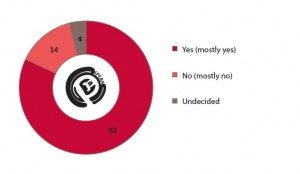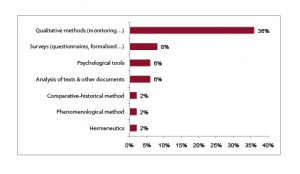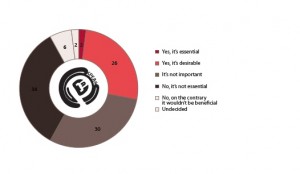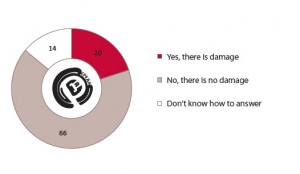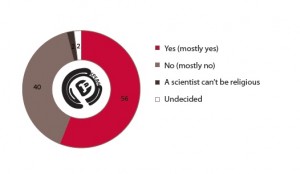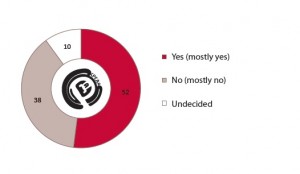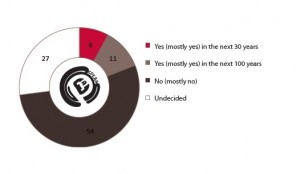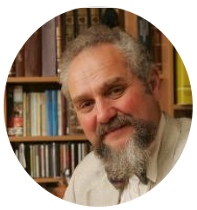Scientist as a religious person
06/30/2011“The more I do science, the more become a believer.”
Louis Pasteur, (1822 – 1895). French scientist, chemist and microbiologist
Experts believe that the study of religious experience is possible, but among them there is no consensus as to whether a researcher of Orthodox life must himself profess Orthodoxy. 56% of respondents believe that among the Russian scientific community there is a bias against religious scientists, and most experts believe that this bias is groundless. However, more than a half of all respondents claim that the conflict between scientific and religious thinking is irresolvable.
- Do you think it is possible to scientifically explore the religious experience?
- What tools are most promising in terms of research of religious experience?
- Should a researcher of Orthodox life be an Orthodox believer?
- If a theologian is a believer, do you think that scientific approach canbring critical damage to his faith?
- Is there a bias in the Russian scientific community against religious scientists? If so, is this justified?
- Is there a conflict between scientific and religious thinking? If YES, can it be overcome?
Do you think it is possible to scientifically explore the religious experience?
The vast majority of experts (82%) believe that the scientific study of religious experience is possible.
According to the experts, the most appropriate methods for such study would be qualitative sociological methods (36%), in particular in-depth interviews and observations. Also mentioned: polls, psychological techniques, and analysis of texts and documents.
(including 8% Orthodox) claim that the researcher does not necessarily need to be Orthodox himself.
Moreover, the majority of respondents (66%) believe that a critical approach to studying religion does not damage one’s faith.
And at that, 56% of respondents thought that in the Russian scientific community there is a bias against religious scientists. However, most experts (68%), including both Orthodox and non- religious, believe such bias to be groundless.
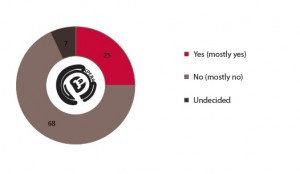
According to experts, a researcher’s religious belonging does not conflict with the scientific study of religion: a researcher may be a believer and his/her scientific activities are not detrimental to his/ her faith, just as faith does not thwart scientific activities.
However, more than half of the experts admitted that there is a conflict between scientific and religious thought and consider it irresolvable.
Only 19% of respondents believe that the conflict ought to be resolved within a few decades. More than half believe that this conflict will never be surpassed.


